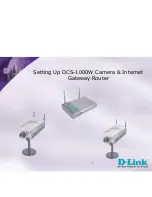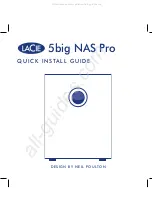
21-42
Cisco BPX 8600 Series Installation and Configuration
Release 9.3.30, Part Number 78-12907-01 Rev. E0, May 2005
Chapter 21 Configuring ATM Connections
Traffic Policing Examples
Dual-Leaky Bucket (An Analogy)
The following are the generic cell rate algorithm viewpoints:
•
For a stream of cells in an ATM connection, the cell compliance is based on the theoretical arrival
time (TAT).
•
The next TAT should be the time of arrival of the last compliant cell plus the expected arrival interval
(I) where I = 1/rate.
•
If the next cell arrives before the new TAT, it must arrive no earlier than new TAT - CDVT to be
compliant.
•
If the next cell arrives after the new TAT, it is compliant, but there is no accrued credit.
CBR Traffic Policing Examples
CBR traffic is expected to be at a constant bit rate, have low jitter, and is configured for a constant rate
equal to Peak Cell Rate (PCR). The connection is expected to be always at peak rate.
When you add a connection, you assign a VPI.VCI address, and configure the UPC parameters for the
connection. For each cell in an ATM stream seeking admission to the network, the VPI.VCI addresses
are verified and each cell is checked for compliance with the UPC parameters. The CBR cells are not
enqueued, but are processed by the policing function and then sent to the network unless discarded.
For CBR, traffic policing is based on:
•
Bucket 1
–
PCR(0+1), Peak Cell Rate
–
CDVT(0+1), Cell Delay Variation
You may configure CBR connection with policing selected as either 4 or 5.
With policing set to 5, there is no policing.
With policing set to 4, there is single leaky bucket PCR policing as shown in Figure 21-18. The single
leaky bucket polices the PCR compliance of all cells seeking admission to the network, both those with
CLP = 0 and those with CLP =1. Cells seeking admission to the network with CLP set equal to 1 might
have either encountered congestion along the user’s network or might have lower importance to the user
and have been designated as eligible for discard in the case congestion is encountered. If the bucket depth
CDVT (0+1) limit is exceeded, it discards all cells seeking admission. It does not tag cells. If leaky
bucket 1 is not full, all cells (CLP =0 and CLP=1) are admitted to the network.
Summary of Contents for BPX 8650
Page 49: ...P A R T 1 The BPX Switch ...
Page 50: ......
Page 159: ...P A R T 2 Installation ...
Page 160: ......
Page 273: ...P A R T 3 Initial Configuration and Network Management ...
Page 274: ......
Page 311: ...P A R T 4 Configuring Connections ...
Page 312: ......
Page 487: ...P A R T 5 Troubleshooting and Maintenance ...
Page 488: ......
Page 533: ...P A R T 6 BPX Specifications ...
Page 534: ......
Page 555: ...P A R T 7 Appendices ...
Page 556: ......
















































